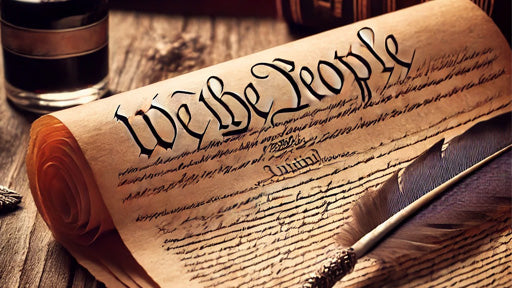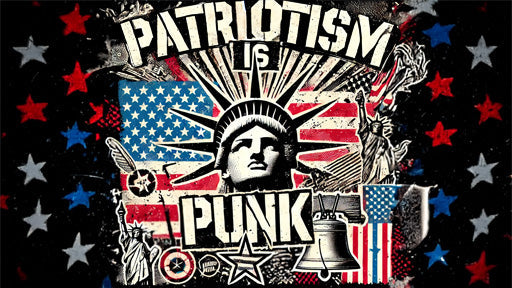
Why "Fascist" Doesn’t Fit the American Right (or President Trump): A Closer Look at Ideologies
The term "fascist" is getting thrown around a lot in political conversations these days, but it’s important to understand that the way fascism works in Europe doesn’t translate easily to the U.S. political system. While it’s true that fascism is considered a far-right philosophy in Europe, the structure and values of the American government—especially the principles of federalism—don’t align with what defines fascism.
European Fascism: Centralized Power and Control
In Europe’s history, fascism thrived on centralizing government control. Leaders like Mussolini in Italy and Hitler in Nazi Germany expanded federal power to dominate every part of life—business, education, media, even personal beliefs. Fascism’s goal was to unify the country under a single, powerful authority, eliminating opposition and controlling as many aspects of society as possible.
The hallmark of these regimes was centralized power: everything flowed to the top, leaving no room for regional or individual autonomy. The government directed economic production, media messaging, and even cultural norms.
American Conservatism: A Push for Decentralization
On the other hand, the American political right often pushes for the opposite: limiting federal power and giving more control to states and individuals. This has been a consistent theme throughout U.S. history. One great example is Ronald Reagan’s presidency—he made it a priority to shrink the federal government by cutting taxes, reducing regulations, and shifting more responsibility to the states. Another one is Trump, if re-elected he plans to shrink the federal government (or in in his words, "drain the swamp"), enforce the laws on the books, end wars in critical global hotspots, and he supports the Supreme Court's decision to allow states to decide their own laws on abortion. That’s about as far from fascism as you can get.
Now, we all know Conservatives don't always get it right...I mean, the "Patriot Act," right?
While fascism is all about expanding control from the top down, American conservatism tends to focus on pushing power outward—away from Washington, D.C., and toward states, local governments, and individuals.
The U.S. Constitution and Federalism
The 10th Amendment of the U.S. Constitution plays a key role here too. It states that any powers not specifically granted to the federal government belong to the states or the people. This idea—known as federalism—was designed to prevent the kind of centralization that defines fascist regimes. American thinkers like James Madison believed in a system where the states had room to govern themselves, acting as a safeguard against federal overreach.
Federalism vs. Fascism in Today’s Politics
We can see the contrast between federalism and fascism in some current political debates. For example, conservative efforts to dismantle federal agencies, like calls to abolish the Department of Education or limit the Environmental Protection Agency (EPA), are about giving more control to the states, not consolidating power. A fascist government would aim to concentrate these powers within a central authority, not break them apart.
Even when conservatives advocate for strong executive action at times, the goal is often to reduce the influence of federal agencies—not to expand it. The power is meant to flow away from the federal government, toward states and individuals. That’s the opposite of fascism’s top-down control.
Authoritarianism Isn’t the Same as Fascism
It’s worth noting that authoritarianism—strong, decisive leadership—isn’t automatically fascist. There are times when leaders, even on the American right, push for more executive authority than we're often comfortable with. But the crucial difference is in how that authority is used. Fascism concentrates power permanently in the federal government, while American conservatism, at its core, seeks to distribute power downward. Think of recent efforts to overturn federal mandates in favor of state laws—domestic oil and natural gas production, for example — that’s decentralization, not fascism.
Final Thoughts
While it makes sense to call fascism "far-right" in a European parliamentary system, that label doesn’t fit well within the American political framework. Fascism thrives on centralized power, while the American right focuses on limiting federal authority and empowering states and individuals.
Misusing the term "fascist" in the U.S. political landscape not only confuses the conversation but also oversimplifies complex ideas. Understanding these differences can help us have more meaningful political discussions—ones that focus on what leaders are actually doing, rather than relying on labels that don’t quite fit.
Kinda makes you wonder who the real fascists are, doesn't it?



1 comment
Really appreciated the article. While I know what fascism in Europe is, want a concise definition or summary that wasn’t put out by the internet and was little more than propaganda. Thanks for the information.
Clark Ulam
Leave a comment
This site is protected by hCaptcha and the hCaptcha Privacy Policy and Terms of Service apply.